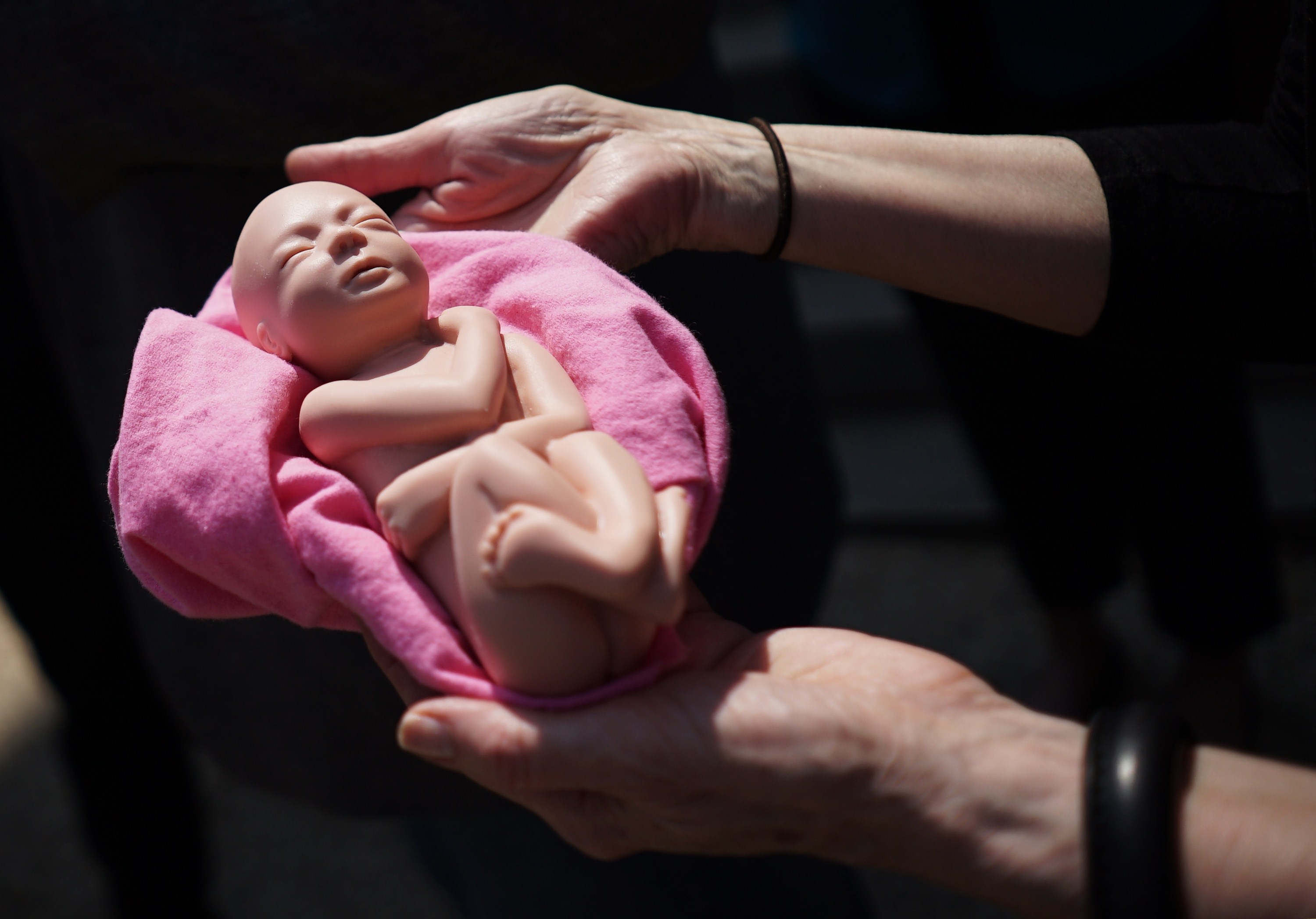MPs to vote on lowering upper time limit for abortions
MPs will be given the opportunity to vote on lowering the abortion time limit in an historic vote that is expected to take place next month. A cross-party group of 25 MPs has tabled a landmark amendment to the Government’s flagship Criminal Justice Bill ahead of Report Stage which would lower the abortion time limit The post MPs to vote on lowering upper time limit for abortions appeared first on Catholic Herald.

MPs will be given the opportunity to vote on lowering the abortion time limit in an historic vote that is expected to take place next month.
A cross-party group of 25 MPs has tabled a landmark amendment to the Government’s flagship Criminal Justice Bill ahead of Report Stage which would lower the abortion time limit from 24 to 22 weeks in line with advances in medical science.
The group of MPs led by Caroline Ansell includes former health minister Maggie Throup, ex-shadow cabinet Labour minister MP Rachael Maskell, ex-shadow Labour minister Marie Rimmer, ex-Cabinet Minister Sir Jacob Rees-Mogg and Miriam Cates.
Mrs Ansell, the Conservative MP for Eastbourne, said: “The increase in survival rates for babies born at 22 and 23 weeks gestation is one of medical science’s great success stories in recent years.
“More and more babies born at these ages are able to survive thanks to the hard work of neonatal teams.
“As in 1990, when our laws were last changed to reflect similar increases in survival rates, it is time our abortion time limit was updated.
“Our current time limit is an outlier compared with our European neighbours and my hope is this amendment will command widespread support across the House.”
A 24-week abortion limit is now beyond the point when many babies survive, double that of the most common time limit among European Union countries and represents a contradiction at the heart of our abortion law.
Originally set at 28 weeks, the abortion limit was lowered in 1990 to 24 weeks’ gestation. Improved survival rates for extremely premature babies between 24 and 28 weeks was one of the key considerations that motivated this change.
By the same logic, and informed by the improved survival rates for babies born at 22 and 23 weeks gestation, MPs are now calling for the abortion time limit to be updated.
In the decade to 2019 alone, the survival rate for extremely premature babies born at 23 weeks doubled, prompting new guidance from the British Association of Perinatal Medicine that enables doctors to intervene to save premature babies from 22 weeks gestation.
Research published in November 2023 by academics at the University of Leicester and Imperial College London indicates that a significant number of babies born at 22 and 23 weeks gestation can now survive outside the womb. According to this research, there were a total of 261 babies born alive at 22 and 23 weeks, before the abortion limit, who survived to discharge from hospital in 2020 and 2021.
This is compared to the Government abortion statistics, which show that in 2021 alone, 755 “ground C” abortions were performed when the baby was at 22 or 23 weeks gestation (ground C is the statutory ground under which the vast majority of abortions are permitted and there is currently a 24-week time limit for abortions performed under this statutory ground).
This leaves a contradiction in British law. In one room of a hospital, doctors could be working to save a baby born alive at 23 weeks whilst, in another room of that same hospital, a doctor could perform an abortion that would end the life of a baby at the same age.
Our 24-week time limit is also out of step with the majority of European Union countries, where the most common time limit for abortion on demand or on broad social grounds is 12 weeks.
Countries with 12-week limits for abortion on demand or on broad social grounds include Germany, Italy and Belgium as well as the more Nordic countries Denmark and Finland.
Sweden has a time limit for abortion on demand or on broad social grounds that is much lower than the United Kingdom at 18 weeks.
Lowering the abortion time limit is supported by a large majority of the British public. Polling undertaken by Savanta ComRes shows that 60 per cent of the general population and 70 per cent of women support a reduction in the time limit to 20 weeks or below.
Catherine Robinson of Right to Life said: “The UK abortion time limit is double the average among EU countries, which is 12 weeks’ gestation, a point in pregnancy when the NHS website describes the unborn baby as ‘fully formed’.
“At the moment, a baby at 22 or 23 weeks gestation could be born prematurely and have a dedicated medical team provide expert care to try to save his or her life, while another baby at the same age could have their life deliberately ended by abortion in the same hospital at the same time. This is a contradiction in UK law.”
“Polling demonstrates widespread public support for a time limit reduction, with support for this reduction strongest among women.”
(Photo: MANDEL NGAN/AFP/Getty Images)
![]()
The post MPs to vote on lowering upper time limit for abortions appeared first on Catholic Herald.













